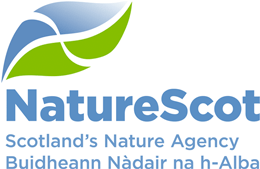06 June, 2014
EU funding award to enhance seabird populations on Shiant Islands
(Issued by RSPB Scotland on 6 June 2014)
A project to safeguard Scotland’s threatened seabird colonies has been awarded almost £450,000 of European Union funding.
Work will focus on the remote Shiant islands which are home to more than 150,000 seabirds that gather there to breed each year. The island group, located in the Minch in the Outer Hebrides, is one of the most important seabird breeding sites in Europe. It supports 10% of the UK’s puffin population and 7% of the UK’s razorbills, and has been designated a Special Protection Area (SPA) for Wild Birds.
Two other species of seabirds, the Manx shearwater and European storm petrel, are now restricted to a small number of island locations on the west coast of Scotland. They continue to be threatened by factors such as climate change, pollution and a shortage of breeding sites.
Neither species is resident on the Shiants, but there is an abundance of suitable habitat, and some evidence that shearwaters once bred there. The Seabird Recovery Project aims to create conditions which will attract them to the Shiants to breed alongside the resident puffins and razorbills. The project will use recordings of calls to attract the birds and will carry out active management to make sure the birds have the best opportunity to settle and breed.
A significant challenge will be removing the non-native black rat which most likely came ashore from shipwrecks in around 1900. The exact impact of these non-natives on the Shiants is not fully known. However, studies have shown that they will eat seabird eggs and young chicks and their removal from islands has demonstrable benefits for breeding seabird populations.
The Shiants Seabird Recovery Project is a partnership between RSPB Scotland, Scottish Natural Heritage (SNH) and the Nicolson family, who have been the custodians of the Shiants for three generations. The experience will be used to prepare a biosecurity plan to protect other islands from non-native predators.
Andy Douse, SNH’s ornithologist, said: “This is an exciting project that will address the problems facing one of Scotland’s finest concentrations of breeding seabirds. It will also provide us with a better understanding of rat control methods that can be used more widely and it will promote better biosecurity for islands that remain or have been cleared of invasive rats.”
Following substantial research and consultation with specialists, an operational plan is being developed to eradicate the rats in the safest and most effective way, with the lowest risk of impacting native species, by laying poison in bait stations around the islands.
The project will cost around £900,000, with European Commission funding of £446,371 now secured under the LIFE+ programme, the European Union's environment fund. Scottish Natural Heritage (SNH) is providing £200,000 and the remainder will be raised from donations.
High resolution images of the Shiants are available from RSPB Scotland on request.
Ends
Contact information
- Name
- SNH Media
- snhmedia@snh.gov.uk
NatureScot is Scotland's nature agency. We work to enhance our natural environment in Scotland and inspire everyone to care more about it. Our priority is a nature-rich future for Scotland and an effective response to the climate emergency. For more information, visit our website at www.nature.scot or follow us on X at https://x.com/NatureScot
’S e NatureScot buidheann nàdair na h-Alba. Bidh sinn a’ neartachadh àrainneachd na h-Alba agus a’ brosnachadh dhaoine gu barrachd suim a chur ann an nàdar. Tha e mar phrìomhachas againn gum bi nàdar na h-Alba beairteach agus gun dèilig sinn gu h-èifeachdach le èiginn na gnàth-shìde. Tha an tuilleadh fiosrachaidh aig www.nature.scot no air X aig https://x.com/NatureScot
